#FreeBashir: Iranian music maestro victim of French repression of pro-Gaza activism
By Ivan Kesic
Last week, in a move widely condemned as part of the French government’s ongoing repression of pro-Palestinian activism amid the Israeli war on Gaza, an Iranian national was arrested in France.
Bashir Biazar, a renowned music maestro and cultural figure, has been languishing in a French jail for the past week after being accused of “supporting terrorism” and “causing discord in the community” over his advocacy of the Palestinian cause and opposition to the Israeli genocidal war on Gaza.
Previously the production manager at the Music and Song Department of the Islamic Republic of Iran Broadcasting (IRIB) in Tehran, Biazar was summoned by French police in Paris on June 4 without explanation or a warrant.
Much to his surprise, he was arrested immediately after he arrived at the police station and transferred to a detention facility for illegal migrants located over 100 kilometers from his residence, according to privy sources and eyewitness reports.
There has been no official comment from the French government or police regarding the charges against Biazar. They have remained tight-lipped despite multiple calls for clarification.
Many Iranian officials, including the foreign ministry spokesman and the country’s top human rights officials, have condemned the arrest as a breach of international humanitarian law.
Iran’s acting foreign minister, Ali Bagheri Kani, has pursued the issue through official channels.
Who is Bashir Biazar?
The pinned post on Biazar’s X handle, formerly Twitter, features a video of him addressing a United Nations session on anti-Iran sanctions, Israeli actions in Gaza, and the world body’s passivity.
“The Zionists have never been so alone, hated, defeated, and humiliated,” he wrote in the tweet.
His speech at the UN drew significant applause but angered pro-Israel lobby groups in France and other Western countries.
Biazar is not considered a political activist but rather an artist and cultural figure who is passionate about significant issues, including the situation in Gaza.
Born and raised in Iran, Biazar is an independent music composer and filmmaker who has earned international fame for his work.
He studied at Allameh Tabatabai University in Tehran, earning a bachelor's degree in political science in 2005, and continued his higher education at Osmania University in India.
After receiving a master's degree in international relations from Osmania University in 2007, he enrolled at Kingston University in London for a doctorate in filmmaking in 2011.
France detains Iranian national over Palestine support pic.twitter.com/4Xb3neHq7n
— Press TV 🔻 (@PressTV) June 6, 2024
Throughout his 20-year career, he has been involved mainly in non-governmental institutions and organizations (NGOs).
He served as managing director of the New Horizon Institute of Arts and Culture and was the secretary of the London-based Islamic Student Association.
For many years, he also worked as a production manager at the Music and Song Department of IRIB, the country’s state broadcaster.
Biazar is well-respected in Iran’s artistic and cinematic circles and has maintained an active presence on social media platforms, where he is followed by thousands of his admirers.
His original Twitter account, which he used since 2009, was deleted after 13 years "with no explanation, no warning, and no reason," leading him to open a new one.
Three years ago, Biazar moved to France for his wife's doctoral studies at a French university.
She also teaches at the university, and their stay in the country is legal according to their friends, family, and Iranian officials.
The couple has two children, one in school and the other in kindergarten. For three years, they have regularly traveled back to Iran without difficulty.
While in France, Biazar was involved in production work and reported from the scene when anti-Iranian groups attacked the Iranian embassy in Paris.
Since the Israeli war on Gaza began in October last year, Biazar has been actively campaigning for an end to the conflict, in which he believes the French government is complicit.
French accusations against Biazar
French authorities have refused to explain to the public and Biazar’s family the actual reasons for his arrest. The details of his indictment have become known recently through close associates.
The French interior ministry has accused Biazar of publishing alleged Iranian "propaganda" and "exploiting anti-Zionism and anti-Americanism," which they view as "political-religious interference."
He is also accused of "participating in the Middle East conflict with operational missions against Iranian opponents or Jewish or Israeli targets," posing a threat to "the integrity and security of France and its international relations."
Further accusations include "hateful social media posts supporting Hamas and Hezbollah in Lebanon and denigrating France," allegedly inciting hostilities that could lead to a terrorist attack.
Based on these accusations, the French authorities describe Biazar as "a vector of hatred that seriously threatens public order and fundamental interests of the state," recommending his expulsion from France.
The French interior ministry also cited two terrorist incidents in France at the end of 2023, suggesting a high risk of similar attacks and attributing Biazar's activities to fueling tensions.
Paris argues that Biazar's "hostile activities" are likely to fuel tension, hatred, and violence between communities and disrupt public order in France, deeming his expulsion an "absolute emergency."
The indictment claims that, due to his two-year residence in France, Biazar cannot claim "significant social and professional integration." It notes that his wife's contract expires in October 2024, and the family is expected to return to Iran soon, thus "the deportation order respects the right to a normal life."
Groundlessness of the accusations
The French foreign ministry's indictment against Biazar is based on false accusations and has been condemned by commentators, Iranian officials, and Biazar’s family and friends.
In an interview with Iran’s Mehr News Agency on Tuesday, Mohammad Mahdi Naraghian, former head of the Music and Song Center at IRIB, stated that the chargesheet against the Iranian national was hastily written, weak, and contradictory.
Naraghian pointed out inconsistencies in the indictment, such as conflicting statements about Biazar’s legal documents. He argued that the charges are politically motivated and baseless.
Biazar's posts on X are in Persian, and analytics show that no French citizens follow him or interact with his content. None of his posts are related to internal French matters or national security.
Biazar has never produced incendiary material, and if such content existed, it would have been used as evidence against him.
Since the start of the aggression on Gaza, Biazar has posted hundreds of tweets about Palestine, the suffering of Palestinians, criticism of the Israeli regime, and Western governments' passivity—similar to what many French and Western citizens do daily.
The French indictment illogically suggests that Biazar's tweets, not the actions of the Israeli regime, ignite tensions. Among his tweets, only nine mention Hamas, all in Persian, with minimal reach.
Biazar has not commented on Hezbollah in recent months except for a single comment on a speech by Seyyed Hassan Nasrallah.
Instagram, a Meta-affiliated platform with strict rules about content related to Hamas and Hezbollah, has not deleted Biazar's profile, indicating he did not break any rules.
Experts argue that Biazar’s detention with illegal migrants, without informing his family of the reasons for his arrest, is a form of torture.
Reactions of Iranian authorities
Immediately after the news about Biazar's arrest was reported in media, Iranian authorities took swift action and followed up through relevant diplomatic channels.
The Ministry of Foreign Affairs, through the Iranian embassy in Paris and other institutions, quickly tracked the case and urged French authorities to release him.
On June 7, Iran’s acting foreign minister, Ali Bagheri, called Mohammad Amin Nezhad, the Iranian ambassador in Paris, to follow up on Biazar’s status.
Bagheri emphasized the importance of continued and comprehensive follow-up by Iran's embassy with relevant French authorities and providing legal and consular support to ensure Biazar’s swift release.
He stated that supporting the rights of Iranian citizens abroad is a priority for the diplomatic apparatus, and the ministry will not hesitate to provide necessary support to Iranian citizens worldwide.
Kazem Gharibabadi, secretary of Iran's High Council for Human Rights, described Biazar’s arrest as "another disgrace for France in the field of human rights." He communicated with Biazar’s spouse and foreign ministry officials, expressing determination to defend their compatriots and calling for Biazar’s immediate release.
Iran's foreign ministry spokesman, Nasser Kanaani, commented on Biazar’s illegal arrest, stating that the ministry initiated efforts for his immediate release.
He said the ministry also discussed the matter with the French ambassador in Tehran, Nicolas Roche.
Mohammad Mahdi Naraghian, former head of the Music and Song Department of IRIB, indicated that Iranian foreign ministry officials are working to expedite the process.
VIDEO | Haifa comes under fresh joint attack by Yemeni forces, Iraqi fighters
VIDEO | Iran presidential election
Iran election abroad: Iranians living overseas ready to exercise their voting rights
Syria to demobilize tens of thousands of reservists as terrorists routed
Iran's envoy to UN: Canada's blacklisting of IRGC 'dangerous'
Nakhala: Late Iran president, FM have major role in victories of resistance
English doctors launch new strike ahead of elections
VIDEO | Meeting in Tehran discuss emergence of ‘new world order’


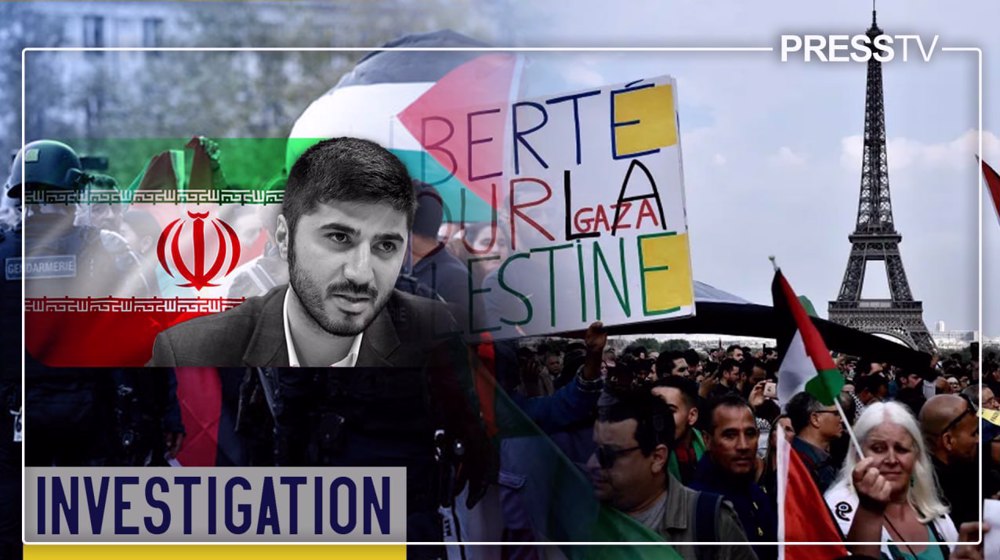

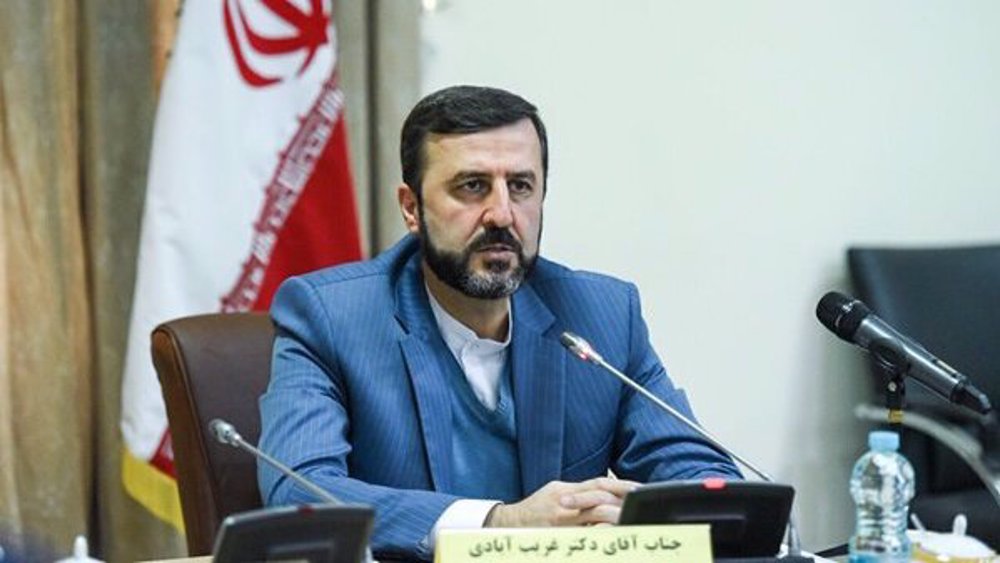

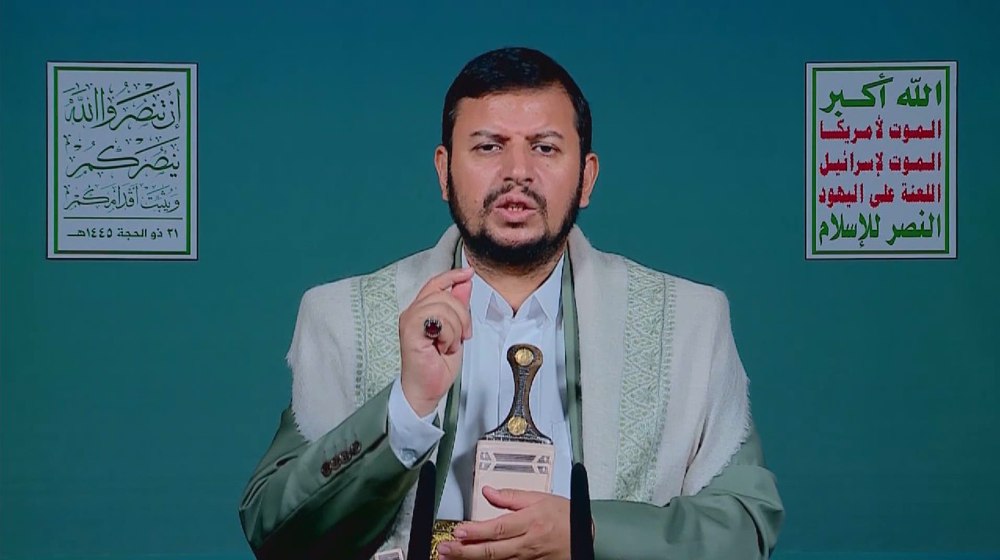
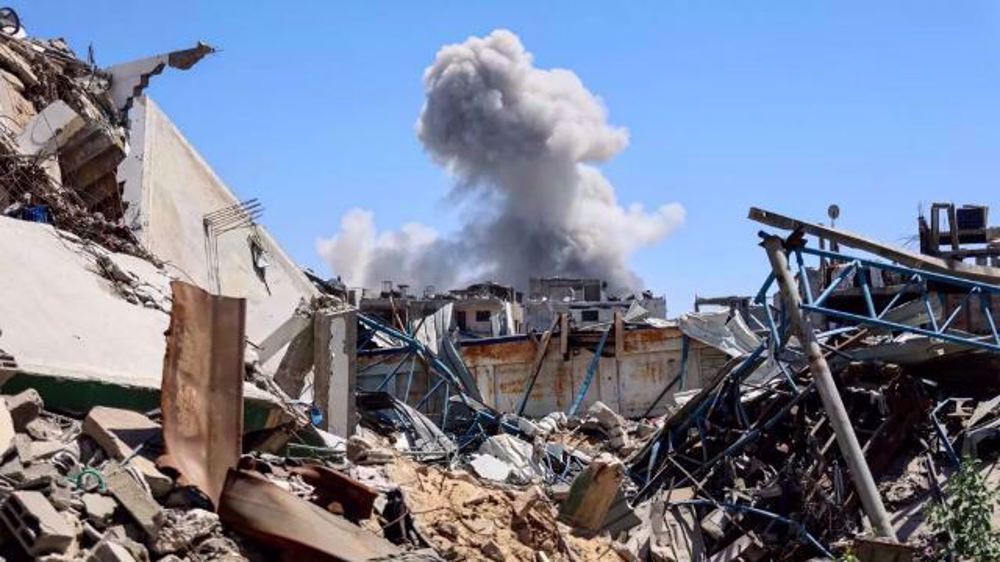




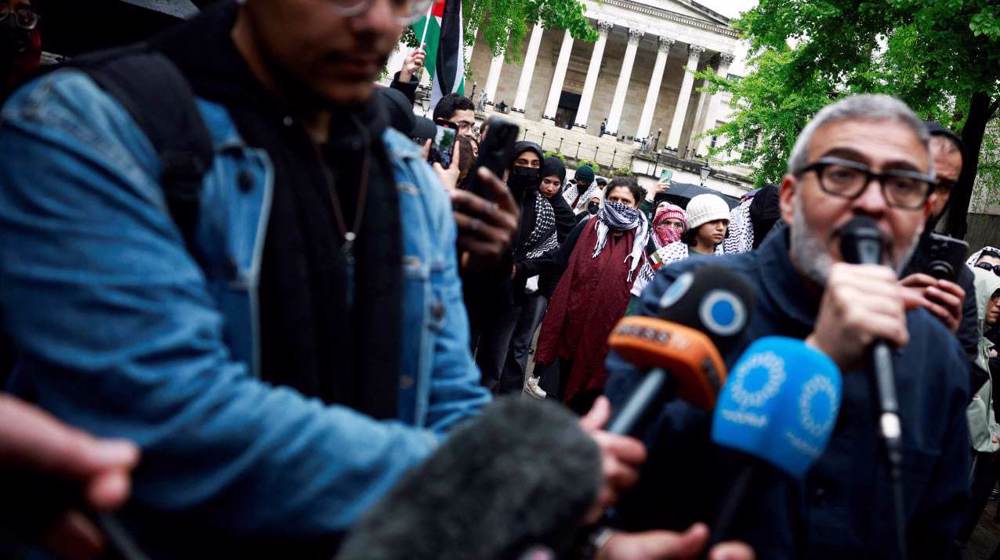

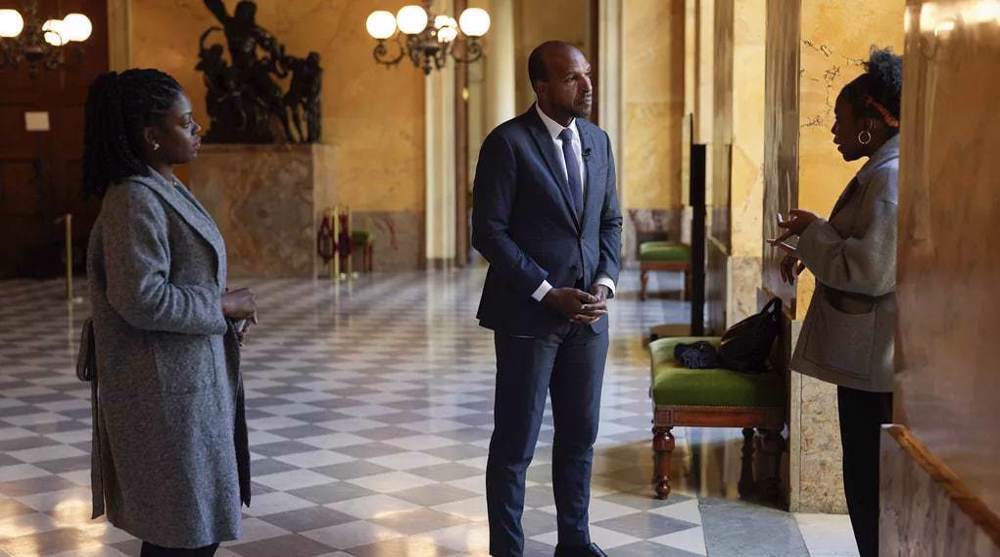

 This makes it easy to access the Press TV website
This makes it easy to access the Press TV website